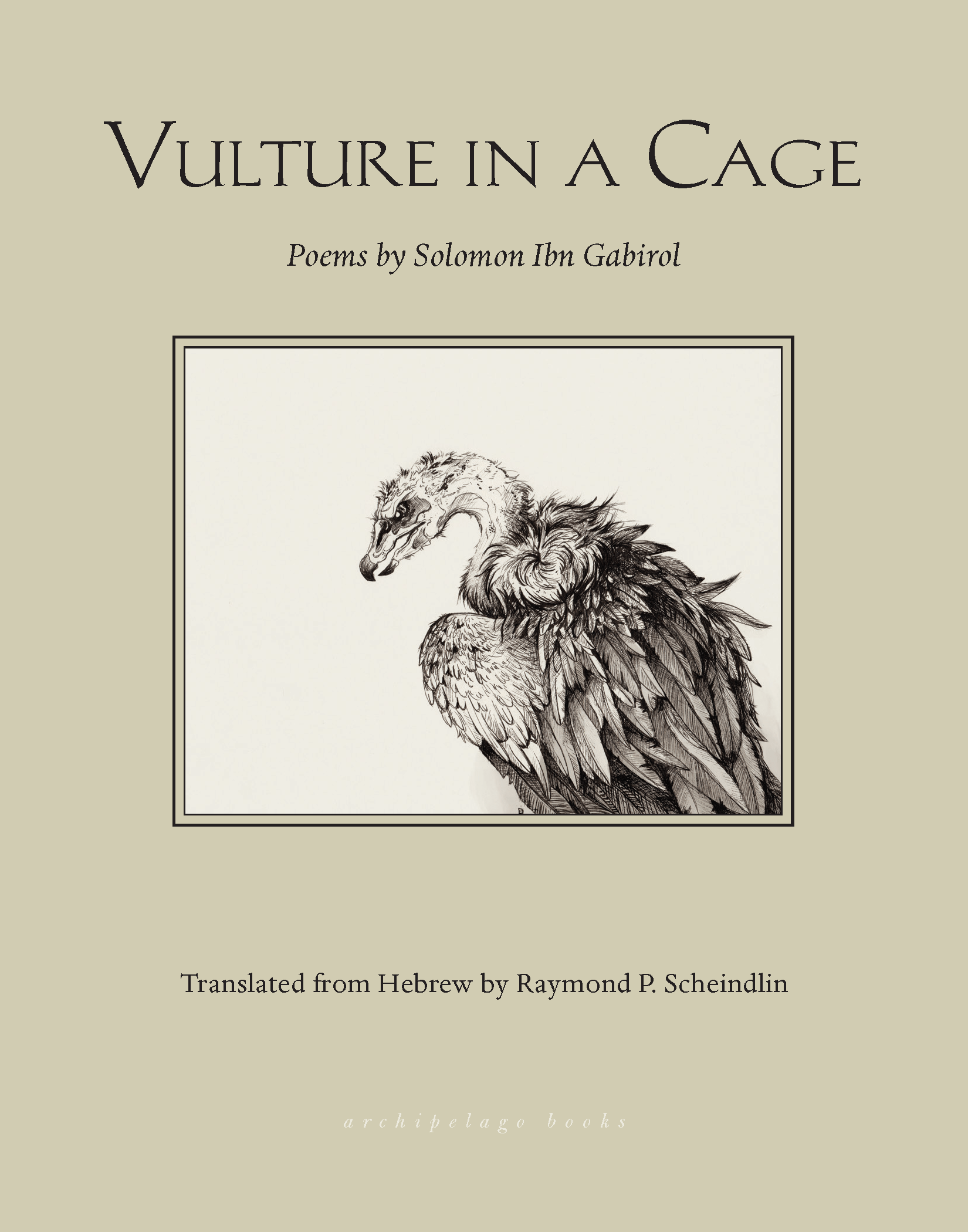Book Description
Named after Solomon Ibn Gabirol’s sharp self-description, Vulture in a Cage is the most extensive collection of the 11th century Hebrew poet’s works ever to be published in English. Weighty poems of praise, lament, and complaint sit alongside devotional poetry, love poetry, descriptive meditations on nature, and epigrams. On the one hand, Ibn Gabirol covers classical ground in his intense desire to break through corporeal constraints and launch his soul into the realm of the intellect. On the other, he exhibits a strikingly modern sensibility in his turn inward and glorification of the self. In any case, Vulture in a Cage offers a look into the complex and intriguing thoughts of one of the major poets of the Golden Age of Hebrew poetry.
Ibn Gabirol sets the archetype for spiritual turbulence in all subsequent Jewish poetry. ...A bitter personality and yet a sublime visionary.
— Harold Bloom
Being medieval, these poems inevitably demonstrate the scope of religious language in their explorations of nature, drink, love, sex, boasting, friendship and loneliness. They are by turns, witty, satirical, elegiac – and always allusive.
— Jane Liddell-King, The Jewish Chronicle
Such unpredictable, uniquely structured poems, intent on self-expression, were written...most strikingly by Solomon Ibn Gabirol. His personal poems reveal a divided spirit trying in vain to achieve wisdom and peace of mind, a man isolated from society, hated and feared by people who were unable to comprehend his philosophy...The speaker in these poems...is torn between hate, fear, and pride, but miraculously triumphs over himself...His imagery is full of surprises...Ibn Gabirol added a new dimension – searching introspection – to Hebrew poetry.
— Dan Pagis, Hebrew Poetry of the Middle Ages and the Renaissance
"This detailed depiction of a winter scene is among the treasures in Raymond P. Scheindlin’s new book of flowing English translations of secular and sacred poems by Solomon Ibn Gabirol..."— Vivian Eden, Haaretz
[Solomon Ibn Gabirol's] poetry was written in a style that did not conform to the esthetics of his age but that today is part of the way we live.— Amos Lassen
Ibn Gabirol's poetry is enormously influential, laying the groundwork for generations of Hebrew poets who follow him--rocky and harsh, full of original imagery and barbed wit, and yet no one surpassed him for the limpid beauty of his devotional verse.— Jewish Book Council
Beautiful locutions about love, longing, and desire.— Choice

